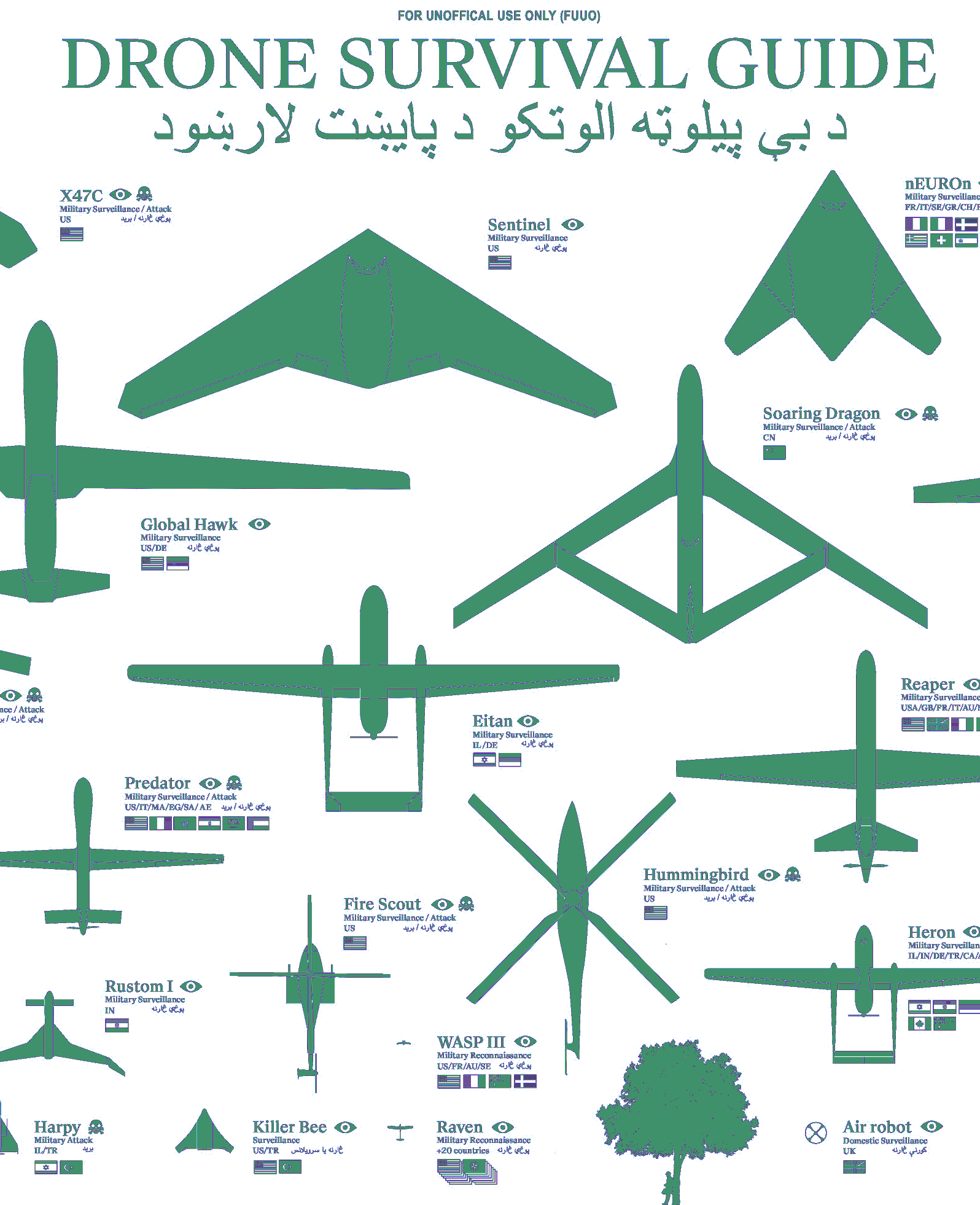Dronedeutung: Introduction
The promise of modernity’s drone-assisted conquest of air space is far from uncomplicated. As unmanned air vehicles become more ubiquitous, with implementations ranging from intelligence-gathering and covert military attacks to cultural production and everyday logistics, this special issue of Krisis captures the technical, aesthetic, economic, psychic, and political challenges facing the rise of the drone. Attending to the multiple deployment and employment of drones, the various contributions to this issue sustain a critical engagement with the conceptual confusions and practical contradictions in related debates, thus collectively generating a counterpoint to reductionist accounts of scientific determinism, drone fetishism, and political spectacle.
To invoke and provoke the everyday, “These Cryptical Skies” by Rob Stone (Emily Carr University of Art and Design) opens the issue by bringing home the unease of displaced technologies through sonic imagination and biomimicry. Moving from patterned cacophonies to discursive shifts, “Drone Visions: Tomas van Houtryve’s Blue Sky Days and the Rhetoric of Precision” by Øyvind Vågnes (University of Copenhagen) evaluates the role of euphemism in shaping public perception of the so-called War On Terror. Echoing the kind of precarious aesthetic that can lead to the uninvention of precision suggested by Vågnes, the next article tackles the prominent image of the drone operator as PlayStation killer head-on—“Embodiment, Subjectivity, Affect in a Digital Age: Understanding Mental Illness in Military Drone Operators” by Alex Edney-Browne (University of Melbourne), by questioning the assumption that the virtualization of violence yields a decrease in empathy, argues that mediation can also constitute feelings of proximity and stimulate peer-recognition.
Continuing with the construction of complex understandings of drone capabilities, “Those Who Feel the Fire Burning: Drone Perception and the Aesthetico-Political Image” by Halbe Kuipers (University of Amsterdam) reflects on the metaphysical and ethical implications of image-making when drones participate in filmic world-making. To investigate the phenomenon of the drone further still, a 2015 debate transcript follows, in which Krisis’s own Eva Sancho Rodriguez (University of Amsterdam) moderates a discussion between Willem Schinkel (Erasmus University Rotterdam) and Rogier van Reekum (Erasmus University Rotterdam and Krisis member) in the context of Drift, an annual festival of contemporary philosophy organized by students of the University of Amsterdam. The issue ends with two book reviews: Sigmund Bruno Schilpzand (University of Amsterdam) on Grégoire Chamayous’s A Theory of the Drone and Tobias Burgers (Freie Universität Berlin) on Ian Shaw’s Predator Empire: Drone Warfare and Full Spectrum Dominance.
Biografie
